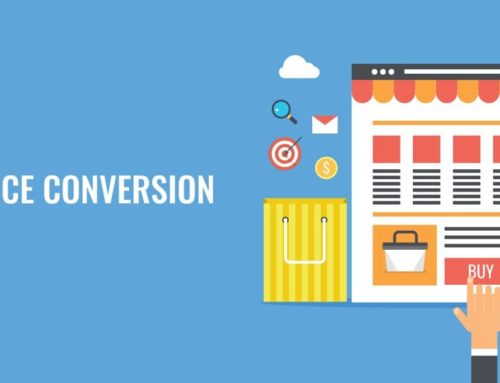Today’s consumers expect an online experience
The marketplace is becoming more and more digital every day. From the giants like Amazon and Zappos to local brick-and-mortar shops, companies that want to grow need to remain relevant to their customer base. Statistics show that consumers have come to expect retailers will have an e-commerce website.
Making the decision to move your business online can be a bit daunting. Yet, with the many benefits an e-commerce website can offer, brands need to consider this important business model.
Stating the obvious
Let’s be honest, it’s really not necessary to comb through a ton of data to recognize that today’s shoppers prefers to shop online. If you haven’t purchased something online recently, it’s likely someone in your household has done so. In fact, consumers spent $517.36 billion online with U.S. merchants in 2018. According to an Internet Retailer analysis of industry data and historical U.S. Commerce Department figures, that’s an increase of 15% from $449.88 billion spent in 2017. Business that haven’t already established themselves in the e-commerce industry have left a lot on the table. While this is an important reason to get into the game, there are other benefits of establishing an e-commerce presence.
Convenience
When you have an online store, it’s possible to be open 24 hours a day, 7 days a week, including holidays. Retailers don’t have to physically be in the store and shoppers can come at their leisure. When you have e-commerce, you offer an option to a customer who may have otherwise shopped somewhere else.
Saves on retail space
There are, of course, startup costs for launching an e-commerce site, but overall the savings can be tremendous when weighed against store rental and upkeep, utilities, staff salaries, equipment and more. Additionally, established retailers who would otherwise have to have larger spaces to accommodate expansion can expand online instead of having to move to “a bigger, brand new location” as many retailers advertise.
Increase your reach
By adding e-commerce, you can immediately begin to serve a larger target audience who may not be able to get to your brick-and-mortar location easily, but still very much wants the product you offer. E-commerce sites open up the possibility of a global audience and it’s easier to customize websites in various languages than it may be to hire and train staff to accommodate customers that speak a different language.
Attract new customers
When you establish an e-commerce presence and your website is optimized properly, search engines will find you. When that happens, new customers typing in search queries will find your brand online and higher up in the results pages. Additionally, utilizing social media is a great way to boost business overall, but satisfied customers will help your efforts even more. People happy with your product or service will take to social media to share their experience with friends and family. This helps broaden your brand.
Provide more information
Today’s consumers want brands to cater to their needs. While it is certainly possible to provide helpful information in a physical space, there is only so much room for displays or time for the staff to devote to assisting a customer. E-commerce websites allow for any number of things to be explained, including what a product is made of, where it originates, whether it contains allergens, and how it can be maintained, among other information. Additionally, e-commerce websites can make the “up-sell” much easier by immediately providing information about other products similar customers also purchased.
Analytics
Perhaps the most powerful component of an e-commerce website is the ability to collect data about customers in ways one could never do in a physical store. When a customer shops at a brick-and-mortar location and pays cash, there may be no personal information exchanged to provide a business with the opportunity to get that person to become a return customer.
With e-commerce, it is possible to learn:
- Customer demographics
- Mobile vs. desktop views
- Products viewed
- Products purchased
- Products shared
- Time spent on site
- Time of purchase
When all this data is properly analyzed, it helps stakeholders make better decisions about the business and leads to a better ROI.
Here to help
At T.E. Digital, from initial design to data gathering and analytics, our team of experts know what it takes to create an e-commerce website that will best suit your brand and serve your customers. Interested in learning more? Just give us a call. Let’s discuss your goals, target audience and develop overall strategy that will to move you closer to success.






Leave A Comment